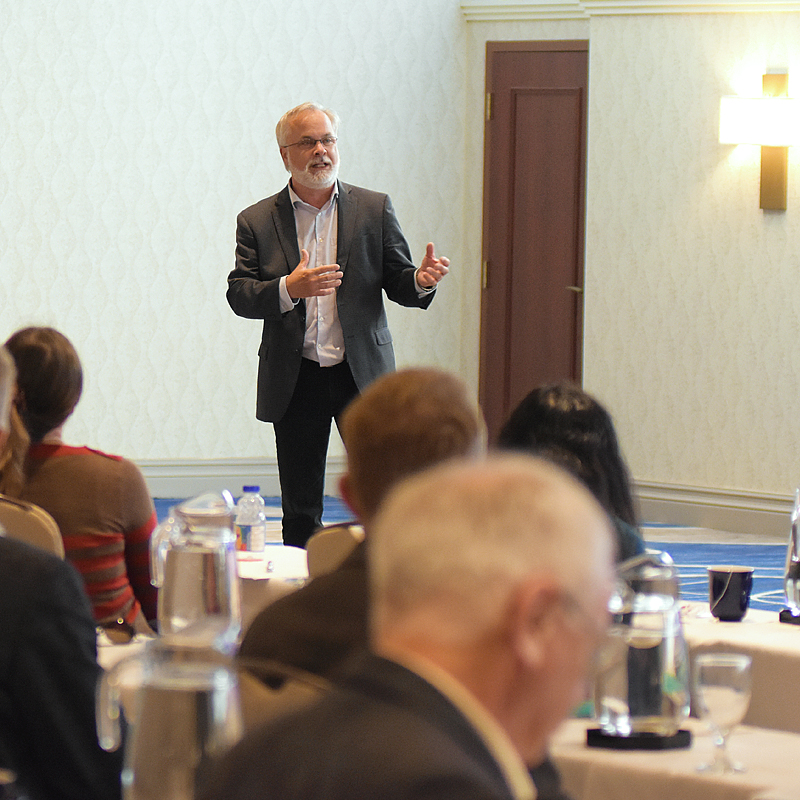The NWMO’s 15th annual Geoscience Seminar, held in June in Toronto, brought together specialists from Canada and other countries to discuss advances in geoscience related to the safe, long-term management of used nuclear fuel. This gathering provides an important forum to showcase NWMO-funded and directed geoscience activities.
The 77 attendees included researchers from eight Canadian universities, as well as representatives from the Geological Survey of Canada, the U.S. Geological Survey, the Canadian Nuclear Safety Commission and the NWMO’s counterparts in Switzerland (NAGRA), Finland (Posiva) and Sweden (SKB).
“This seminar provides an interesting mosaic of everything we do in our geoscience program,” says Mark Jensen, Director of Deep Geological Repository Geoscience and Research at the NWMO. “It provides a snapshot of the many geoscientific projects we sponsor here and abroad that contribute to the Adaptive Phased Management (APM) technical program.”
Among the 32 presentations, NWMO staff provided an update on the NWMO’s work, including repository engineering and safety assessment. In addition, attendees heard about the status of repository planning in Sweden and Switzerland. Technical presentations described applied research within both crystalline Canadian Shield and sedimentary rock.
Attendees also heard from graduate students whose work is being supported by the NWMO.
The 77 attendees included researchers from eight Canadian universities, as well as representatives from the Geological Survey of Canada, the U.S. Geological Survey, the Canadian Nuclear Safety Commission and the NWMO’s counterparts in Switzerland (NAGRA), Finland (Posiva) and Sweden (SKB).
“This seminar provides an interesting mosaic of everything we do in our geoscience program,” says Mark Jensen, Director of Deep Geological Repository Geoscience and Research at the NWMO. “It provides a snapshot of the many geoscientific projects we sponsor here and abroad that contribute to the Adaptive Phased Management (APM) technical program.”
Among the 32 presentations, NWMO staff provided an update on the NWMO’s work, including repository engineering and safety assessment. In addition, attendees heard about the status of repository planning in Sweden and Switzerland. Technical presentations described applied research within both crystalline Canadian Shield and sedimentary rock.
Attendees also heard from graduate students whose work is being supported by the NWMO.

